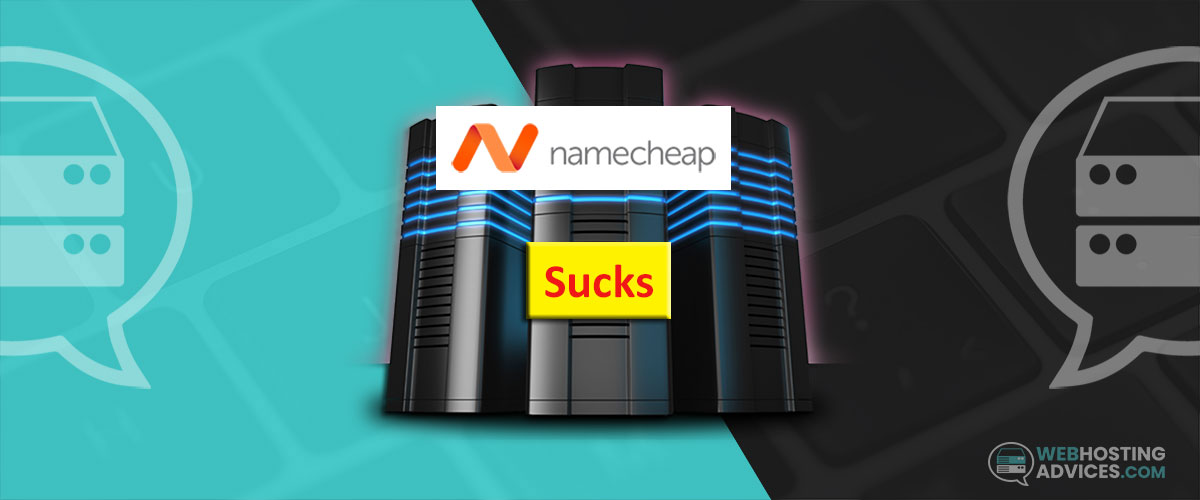Read a few Namecheap reviews but still can’t decide why it’s good or bad? Welcome to another guide of WebHostingAdvices!
At WebHostingAdvices, we aim to provide exact accurate advice for your host. Today, it’s Namecheap’s turn.
We will see why Namecheap hosting sucks. Later, we will see who can still carry on with Namecheap hosting and we will enlist some alternatives for the rest of you.
Let’s start.
Why does Namecheap hosting sucks?
Below are a few of the reasons why WebHostingAdvices doesn’t recommend going with Namecheap.
Account suspension for resource abuse
To begin with, the allocated limit is quite low for a shared hosting plan. You get what you paid for. Namecheap is quite cheap compared to others. So, the resources are also lower.
However, the problem is that if you somehow exhaust the resources or reach the limit, they will suspend your account with or without any prior warning.
Lastly, you will have the only option left to upgrade your hosting. This spoils your budget when you have to upgrade in between a billing term. In some cases, your account might have a security issue (more on it later).
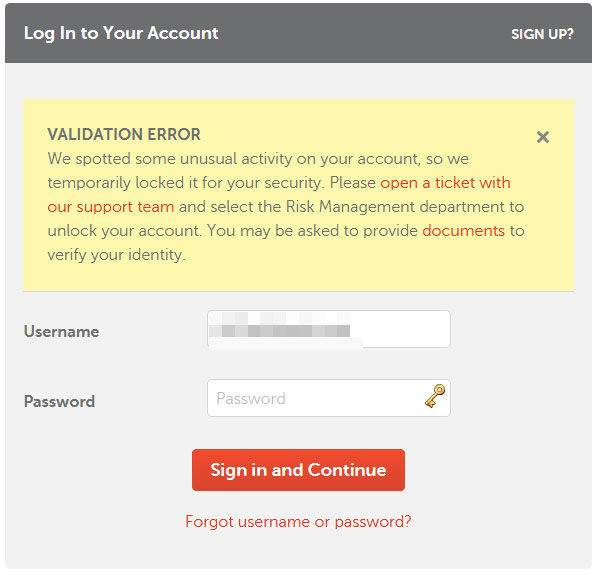
Poor Customer Support
Namecheap had excellent customer support at one point. However, they have been going down in terms of support these days. No doubt, they still solve most of the queries. However, the time taken to solve them is a lot more.
Take live chat for example, back in the day when I was using Namecheap, I only had to wait for a minute or 2. Now, sometimes it takes more than an hour to get a response.
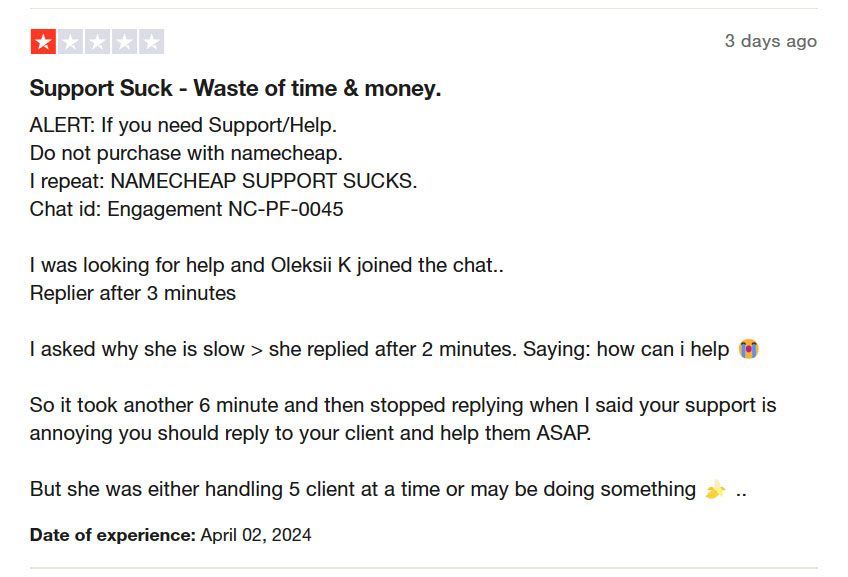
Namecheap also lacks phone support despite being a US-based hosting.
Slow DNS servers
Namecheap has extremely slow DNS servers. Their HTTP forwarding services take several seconds to respond. With this, the website takes a few microseconds to transfer your user to the whole page content. This decreases the overall loading time.
Anyone should follow these rules while getting your hosting.
- You should never use your registrar as a DNS server.
- Never use your DNS server as your hosting host.
- Never keep the registrar and host the same.
Ideally, your domain name registrar, DNS, and hosting should always be different. This makes it easier to switch from different hosting providers.
WebhostingAdvices recommends you connect your domain to Cloudflare and use their DNS.
Limited email sending limit
Unlike other hosting providers, there is a limit on email sending. The limit is for each domain and not for the overall emails sent.
Their limit starts with 50 emails per hour per domain for the stellar plan. It increases to up to 10,000 emails for premium servers.
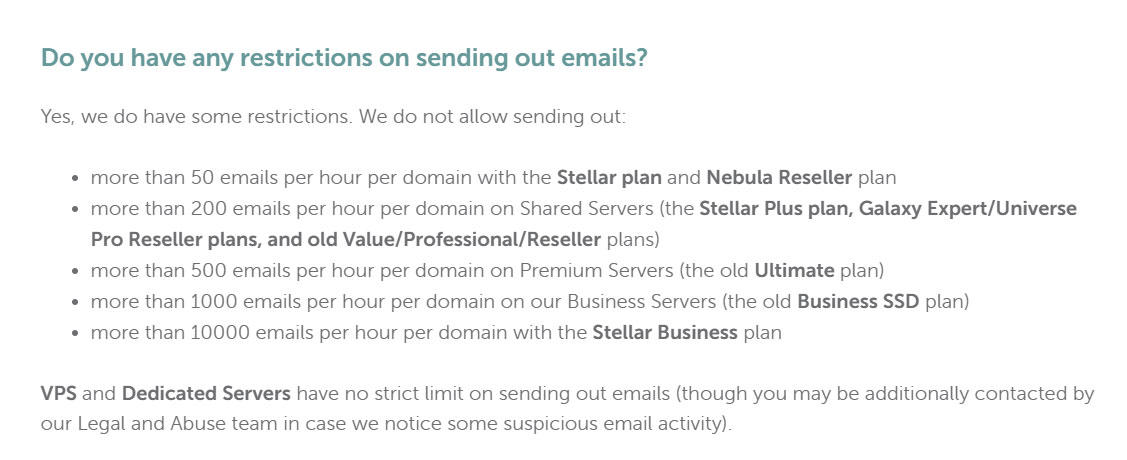
Although there are a few limits it won’t affect most people. As the majority of people won’t send more than 50 emails per hour. However, if you’re an eCommerce website, you will need to send more than 50 emails an hour during peak hours.
There are almost no hard limits on VPS and dedicated servers.
Slow Hosting
The last reason why Namecheap sucks is their slow hosting. Their initial server response time is very high. This slows down the entire website.
It happens because the servers are overpopulated. You can notice that Namecheap is quite cheap. So, they will need enough customers to be profitable. So, they might have been stuffing more users on the server making it harder to keep up with the performance.
Here’s a list of the average, best, and worst loading times of the hosting providers.
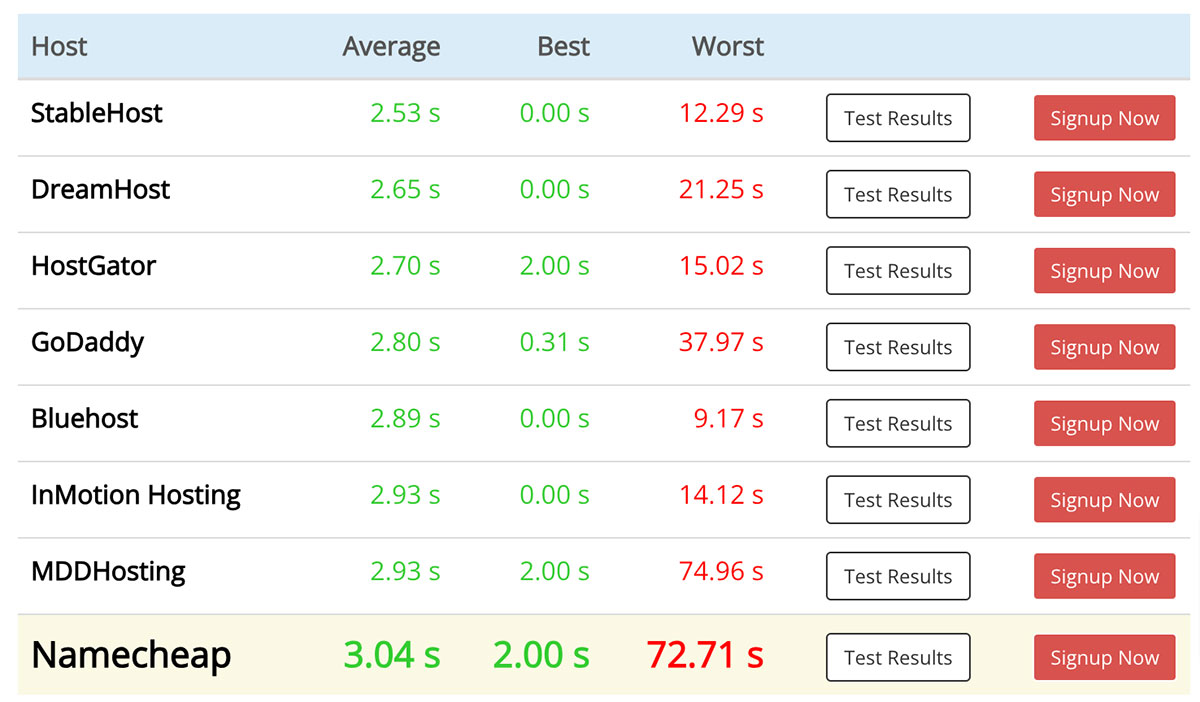
Lack of Scalability
The scalability is quite limited. Their 2nd plan of shared hosting (Stellar Plus) offers a 600k inodes limit for storage and their best (Stellar Business) plan has a 50 GB flat storage limit with no inodes limit.
This becomes quite limited just in terms of storage as they only have three plans.
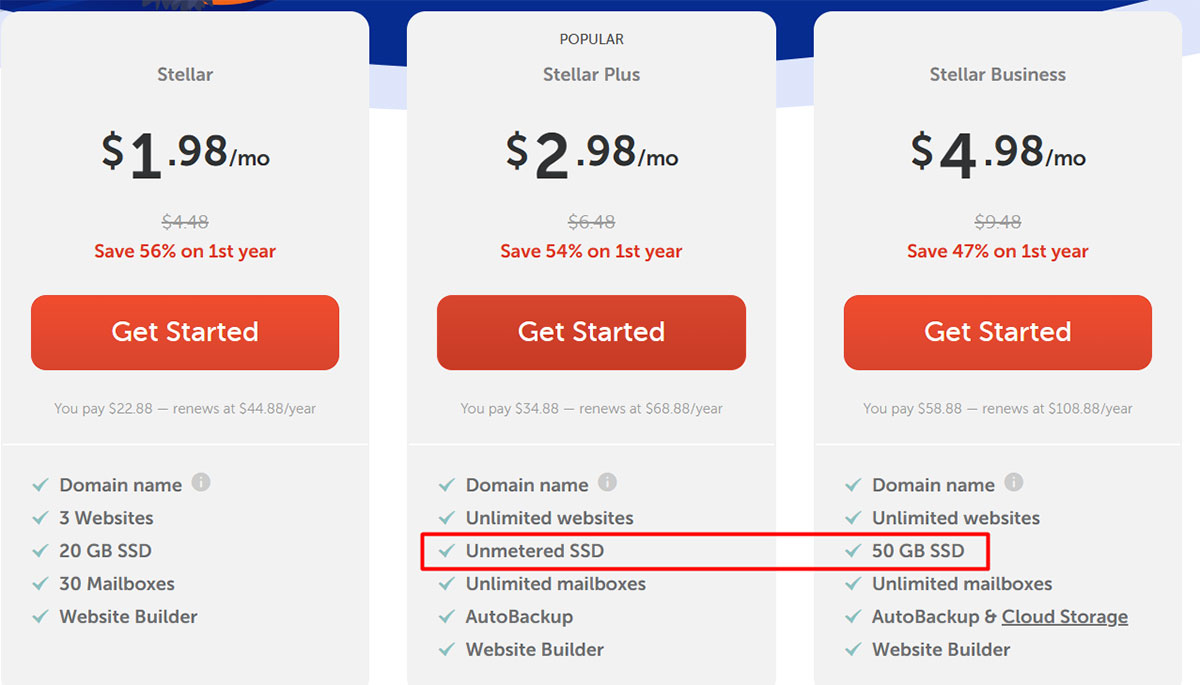
Their VPS is also quite limited with an 8-core CPU. There are fewer add-ons for medium to large enterprises. So, once you start growing, it becomes harder to stay on Namecheap, you will have to find another alternative.
Best Alternatives to Namecheap
So, Namecheap hosting sucks and you need to look for a few alternatives to Namecheap. We’ve got you covered!
- Domain: For domain names, you could even go with Namecheap if needed. However, if Namecheap doesn’t quite suit you, NameSilo is an awesome alternative for domains because of its cheap price and domain management.
- Hosting: We would recommend going with Hostinger if you’re looking for decent performance-based hosting in a similar price range.
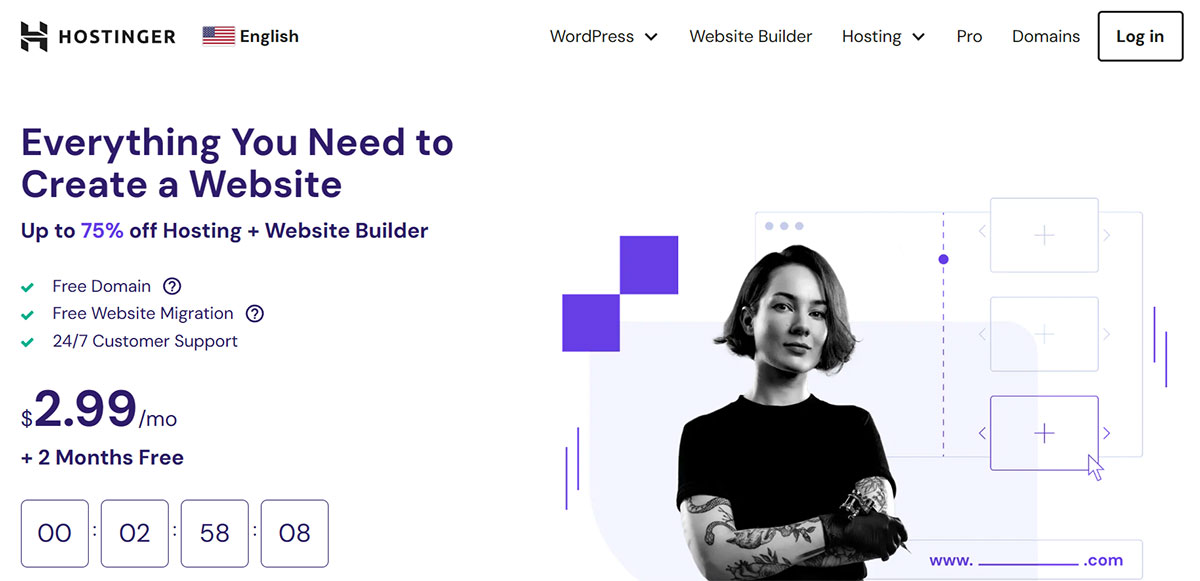
Make sure to keep the domain name and hosting separate.
Conclusion
Namecheap was a good hosting provider a few years back. However, in recent years, they have spoiled their reputation. It’s worth noting that every hosting provider will have their pros and cons.
You can still use Namecheap for a domain registrar. However, if you’re a bit serious about your website, you should prefer other hosting providers. Namecheap is only good hosting if you want a hobby website.
Also read: Why GoDaddy is Bad
FAQ (Frequently Asked Questions)
Is Namecheap really cheap?
We won’t say it’s super-cheap but it’s surely more affordable than other hosts. However, you will have to compromise in terms of performance.
Why is Namecheap so cheap?
Namecheap is cheap because the performance is not worth it. It’s only good for complete beginners who are looking to test the hosting.
No, Namecheap doesn’t have any hidden fees.

